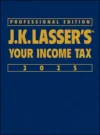What to Do with Your Stock Market Gains or Losses
We are at a crossroads of considerable importance-the stock market appears to be on the rise, but favorable capital gains rates are poised to expire. In order to plan your investment moves between now and the end of the year, understand what could happen to tax rates on certain investments and how it may influence your actions.
Capital Gains Rates
Currently, the top rate on gains from the sale of securities that have been held more than 1 year (long term) is 15%. Taxpayers in the 10% or 15% tax bracket pay no tax on such gains.
If the Bush tax cuts of 2001 and 2003 are allowed to expire, then the top rate on these capital gains would rise to 20%. The administration wants to retain the current rates for most taxpayers, with the 20% rate only for those in the top two tax brackets. Others want to retain the current rates for all taxpayers, at least for 2011 and perhaps for 2012 as well, while overall tax reform is under consideration. The issue may be resolved during the lame duck session of Congress, which begins after the November election. Alternatively, tax rates for 2011 may not be fixed until the new Congress begins next year.
Dividends
Currently, qualified dividends, which are most ordinary dividends on stocks and equity mutual funds, are taxed like capital gains. Thus, they are taxed at no more than 15%; those in the bottom two tax brackets pay no tax on these dividends.
Favorable tax treatment of dividends is set to expire at the end of this year. Unless Congress takes action, dividends will be taxed as ordinary income starting in 2011. This means that dividends will be treated like bank interest and subject to tax at rates potentially up to 39.6%.
Actions to Take
First and foremost, remember that investment decisions should not be dictated solely by tax results. However, the tax treatment of gains, losses, and dividends cannot be ignored. Here are some strategies to consider.
Book capital losses. If you are sitting on capital losses that could be realized, it may pay to sell now. Losses can be used to offset capital gains, with excess losses used to offset up to $3,000 in ordinary income. Even if your losses exceed your gains, you can “save” the excess losses and use them to offset gains that would otherwise be taxed in the future at higher tax rates. The change in the capital gains rate would make losses that can be used after 2010 more valuable.
In taking losses, watch out for the wash sale rule, which bars you from recognizing losses if you acquire substantially identical securities within 30 days before or after the sale. This rule applies even if you sell stock in your personal investment account and then cause your IRA to buy the same stock within the wash sale period.
Harvest capital gains. Capital gains rates won’t be any lower next year; they could be higher. For example, the zero rate for those in the 10% or 15% tax bracket is set to disappear after 2010 unless Congress takes action. Selling appreciated securities before the end of the year will create gains that are taxed at probably the lowest rates ever.
If you normally provide support for your parent who is in the 10% or 15% tax bracket, you might want to give appreciated securities rather than cash and allow your parent to sell the securities and use the proceeds for support.
The wash sale rule does not apply to gains. Thus, you can reacquire the same securities to maintain a tax position while increasing your basis.
Caution: Always review them with your investment advisor to determine their applicability to your personal situation.
Self-employment tax
Tax paid by self-employed persons to finance Social Security coverage. In 2007, there are two rates. A 12.4% rate applies to a taxable earnings base of $95,700 or less and a 2.9% rate applies to all net earnings.



